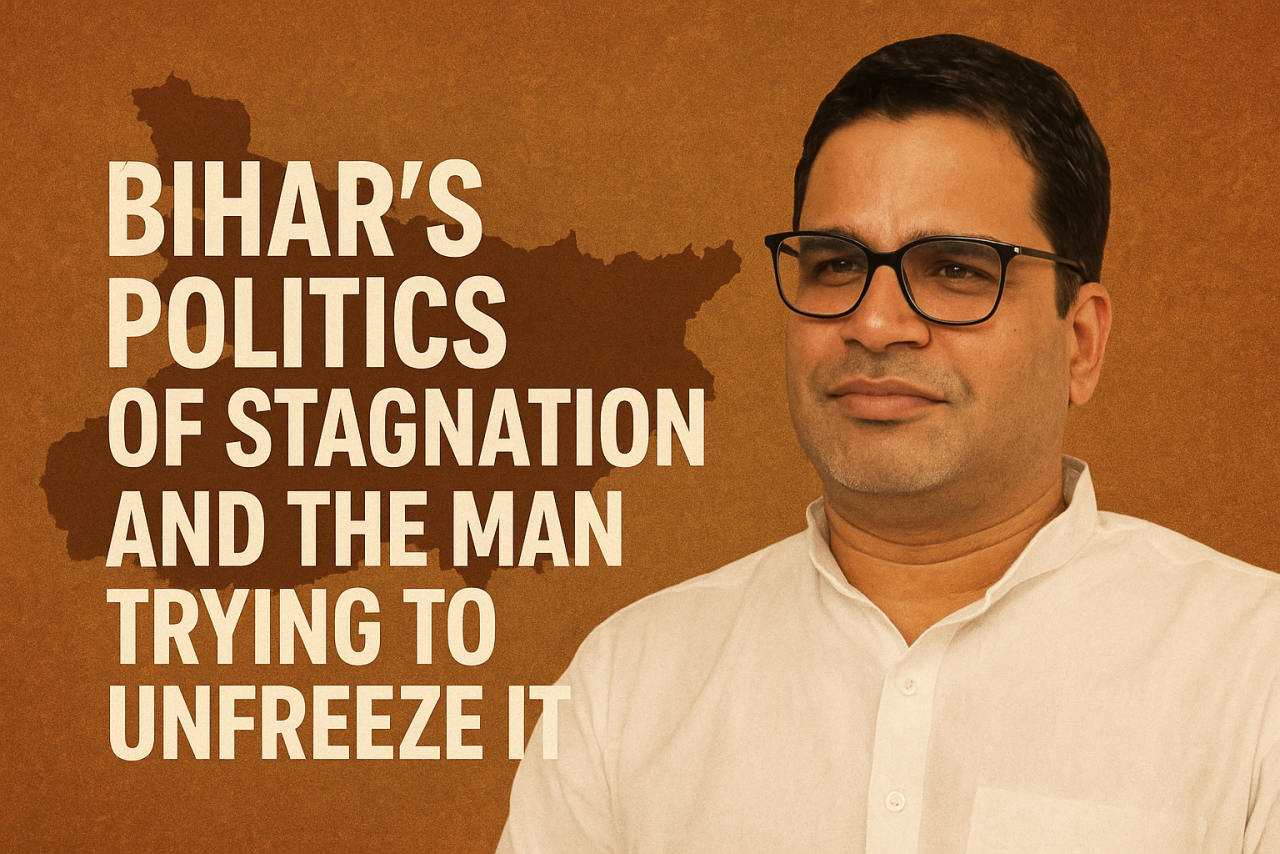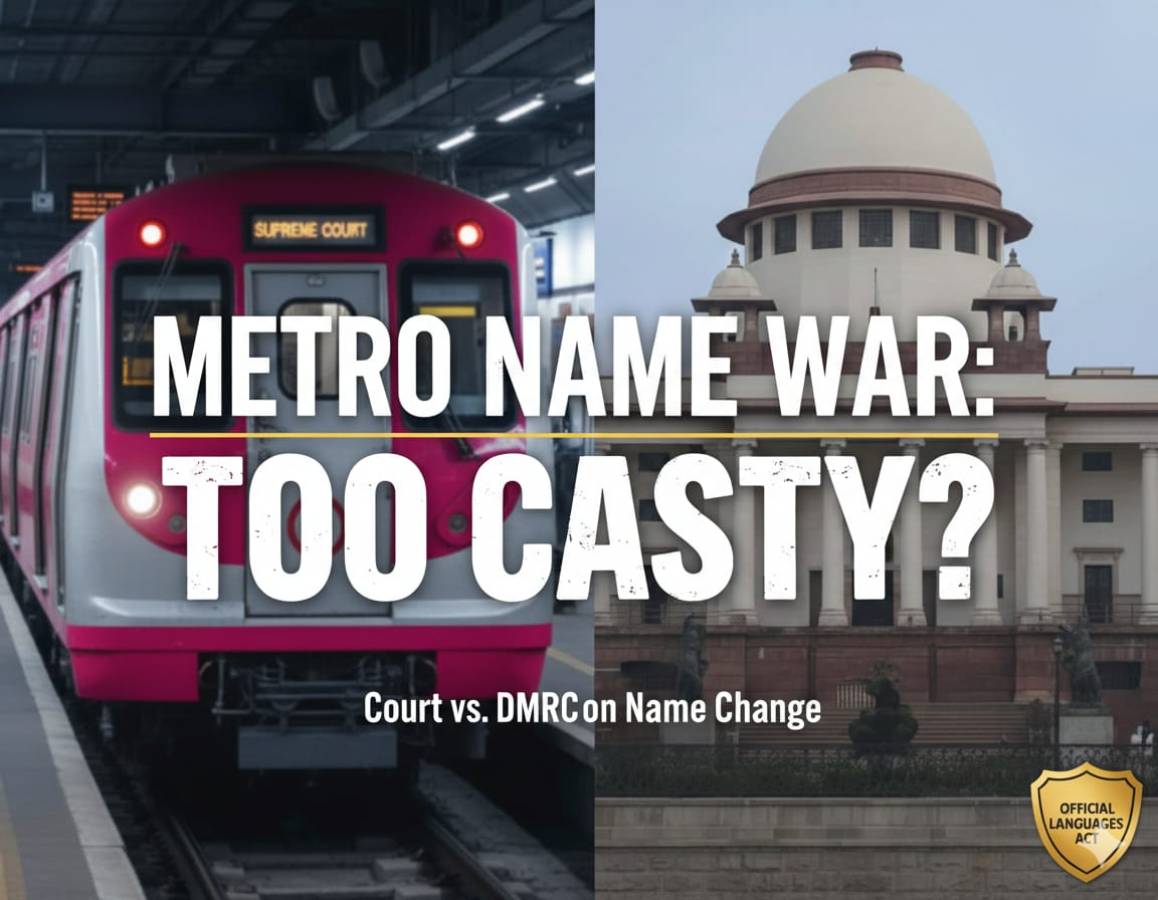
Every election in Bihar reads like an old script with new actors. The slogans change, faces rotate, but the story rarely moves forward. The latest data from the Association for Democratic Reforms (ADR) shows that in the second phase of the 2025 Assembly elections, one in three candidates has a criminal case, and one in four faces serious charges — including murder and crimes against women. For a state that has lived under the shadow of muscle and money power since the 1990s, this revelation is not a shock; it is routine. And that routine is the real tragedy of Bihar.
Politics Without Reform
The figures show what everyone already knows but few acknowledge — that Bihar’s politics has been shaped not by reformers, but by power brokers. Since the era of “social justice” politics in the early ’90s, the state has seen a shift in who rules, not in how they rule. Power moved from one social bloc to another, but governance stayed captive to the same instincts: patronage, caste arithmetic, and control through fear.
The RJD, JD(U), BJP, and Congress all field candidates with criminal records. What was once an aberration is now an accepted credential. When politics becomes a livelihood for the lawless, elections cease to be contests of vision and turn into auctions of influence.
Bihar’s Half-Finished Revolution
Political scientist Manindra Nath Thakur calls Bihar’s story a “frozen transition” — a society that began moving from feudal power to democratic modernity but never arrived. The social awakening of the 1990s empowered the backward castes, yet it also replaced one kind of dominance with another. Access to public services still depends on who you know rather than what you deserve. The State, weak and mistrusted, has been replaced by informal networks of caste and kinship that trade favours for loyalty.
Bihar’s economic and institutional paralysis flows directly from this politics. Investment avoids the state, industries leave, and its young migrate in millions to Delhi, Punjab, or Gujarat. Their remittances sustain villages, but the local economy remains lifeless. In every sense, Bihar survives on borrowed energy.
A New Experiment in the Making
It is in this weary landscape that Prashant Kishor and his Jan Suraaj Party have appeared — not as a mass wave yet, but as a quiet question. Can Bihar change its political DNA?
Kishor’s campaign differs from the rest in tone and method. Instead of relying on caste arithmetic or celebrity faces, he has tried to build a political conversation from the ground up — through long foot marches, community meetings, and data-driven listening exercises. His goal is to rebuild trust between the citizen and the state, a relationship that Bihar’s politics has nearly destroyed.
Critics point out that even Jan Suraaj has candidates with criminal records — 50% in this phase, according to ADR. But context matters. Many of these are local notables with social clout in areas where the line between authority and illegality has long blurred. The real test for Kishor lies not in fielding spotless candidates, but in changing what counts as credibility in Bihar’s politics.
The Weight of a Tired Democracy
Three decades of populism have exhausted Bihar’s democratic imagination. The language of politics is now so transactional that ideals sound naive. Voters, too, have adapted to survival politics — expecting favours instead of policies. The tragedy is not that Bihar’s people do not care, but that they no longer believe change is possible.
Kishor’s emergence taps precisely into that fatigue. His appeal is strongest among young migrants and small-town professionals — a generation that grew up watching Bihar become a national synonym for backwardness and now wants to reclaim its dignity. His idea of Jan Suraaj — governance through people’s participation — may sound utopian, but it gives shape to an old yearning: that politics in Bihar should mean something more than caste calculations and criminal records.
What Bihar Needs to Remember
Bihar’s crisis is not of talent or culture; it is of conviction. For too long, the state has tolerated leaders who mistake rhetoric for vision and power for service. The ADR’s numbers only quantify what is already visible — that the lawless and the incompetent still define public life.
Change, if it comes, will not arrive from slogans or sympathy. It will come when governance stops being a personal favour and becomes a right. Whether Prashant Kishor can engineer that shift remains uncertain, but his experiment has forced Bihar to confront an uncomfortable truth: the state is not poor because it lacks resources, but because it has stopped expecting better.
If Bihar begins to demand better — from its leaders, its institutions, and itself — the long freeze may finally begin to melt.
By Gautam Jha
Managing Editor





















